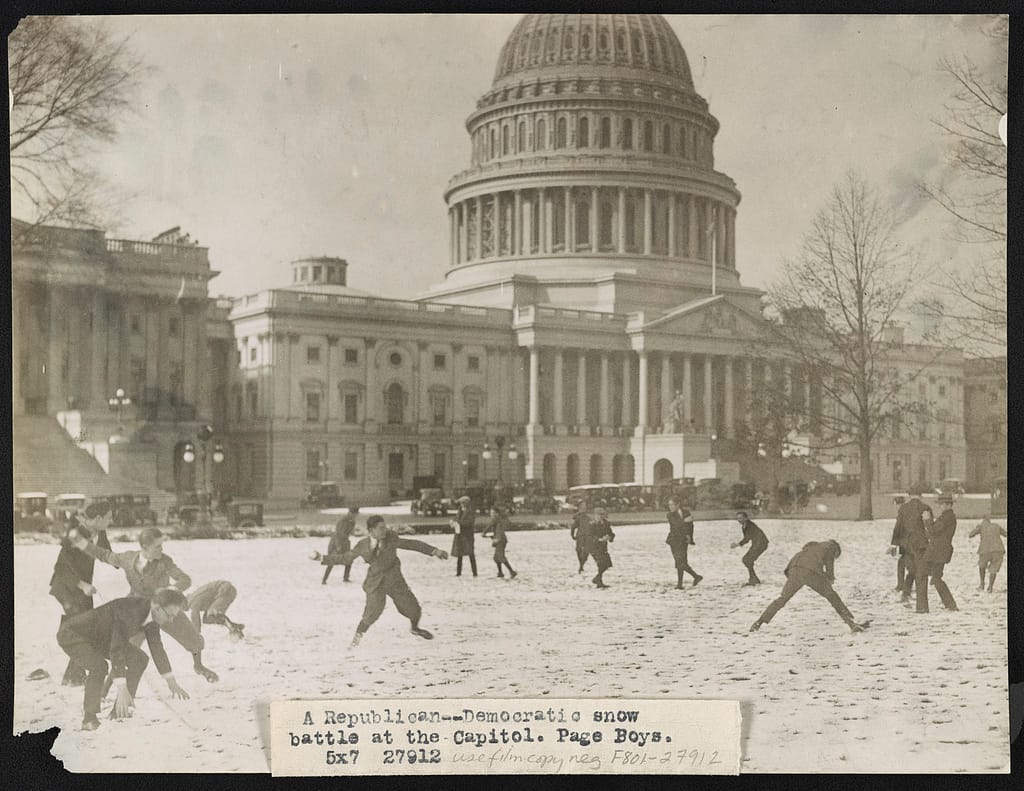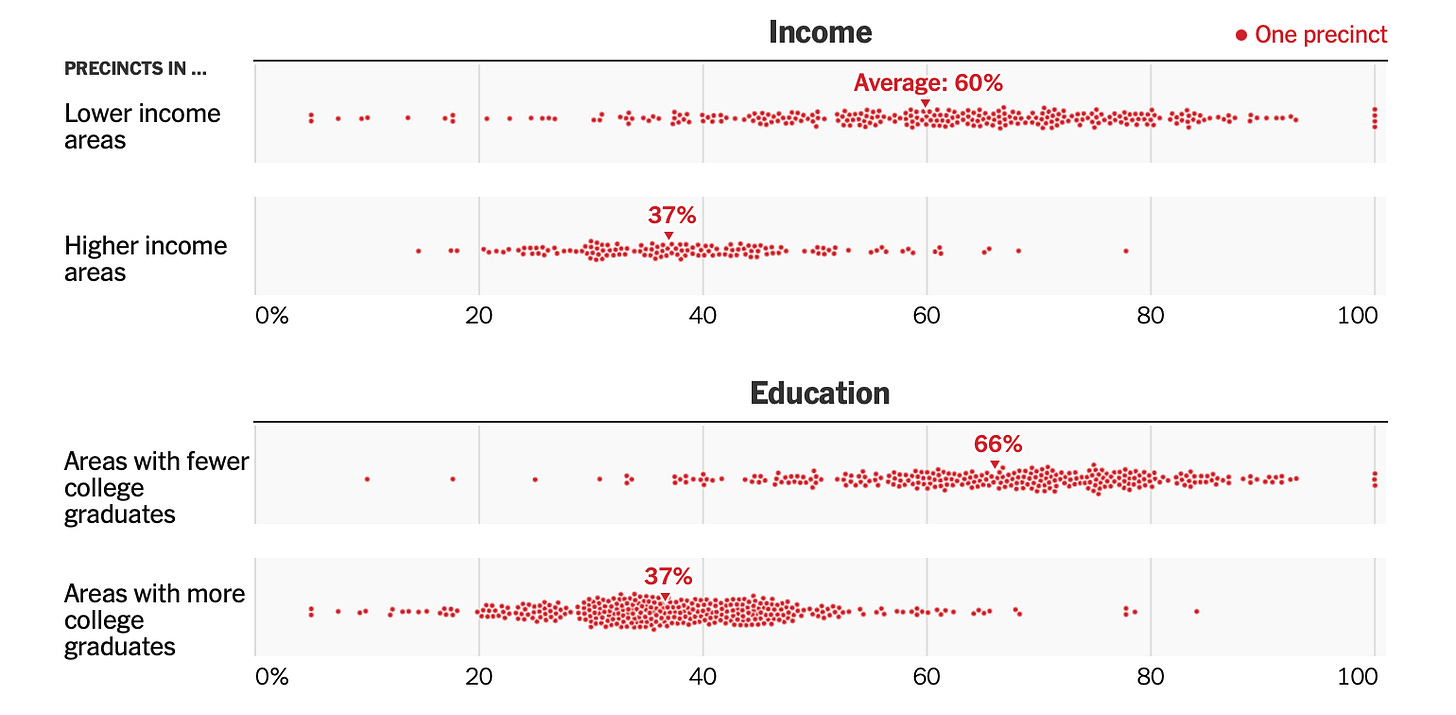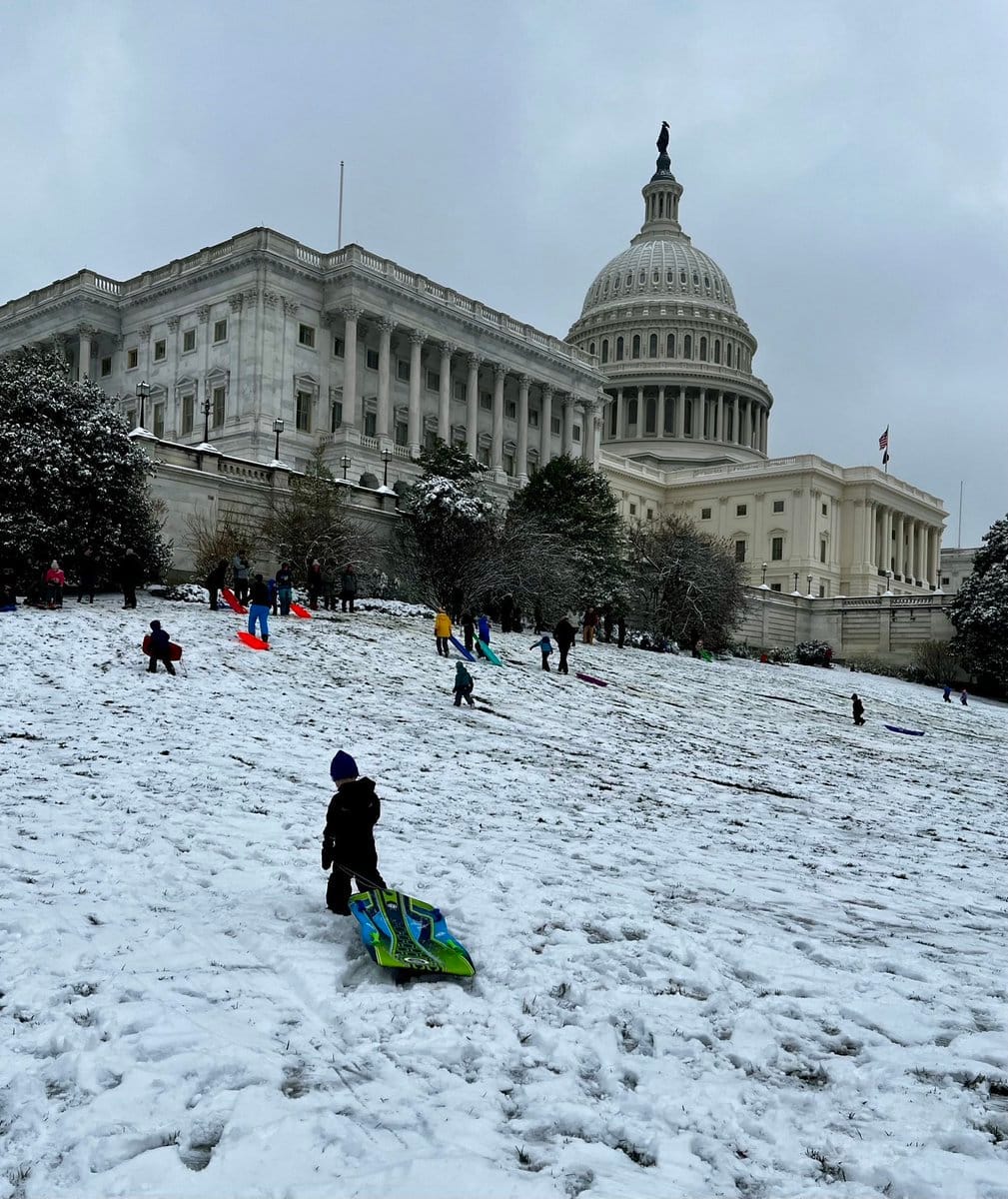The threat of the Haley voters
We all know Republican officials are afraid of Trump voters. But are they ignoring the threat posed by Haley supporters?
Good morning! It’s Wednesday, January 17, 2024. Election Day is 295 days away. If this newsletter was forwarded to you, subscribe here. If you want to contribute to support my work, donate here.
Ted Cruz endorsed Donald Trump yesterday. Two days earlier, Marco Rubio did the same thing. Ditto Mike Lee, two days before that.
It’s become commonplace at this point to note that these Republican senators were once among Trump’s most vocal critics, before eventually climbing on board the MAGA Express. Cruz and Rubio ran against Trump in 2016, exchanging brutal personal insults with him; Lee led the effort at the ’16 convention to stop Trump’s nomination. No matter. “They always bend the knee,” as Trump reportedly said about Tom Emmer, who endorsed the former president even after Trump denied him the House speakership.
In total, more than half of Senate Republicans are now backing Trump in the GOP primaries. It’s no mystery why: even in cases where they personally dislike Trump, they fear his voters. They can’t afford to get on his bad side if they want to maintain their own general election coalitions.
Trump’s nomination itself would also be partially reliant on the same calculus: there are voters, polls show, who will only vote for the Republican ticket if Trump is at the head of it. The party, this thinking goes, can’t win without them.
But new data out of Iowa suggests that perhaps there is another demographic the GOP should be afraid of: Haley voters.
Most of the Iowa entrance polling has been described as proof of Trump’s dominance over the GOP — which is true, up to a point. But it is also revealing to look at the size of the anti-Trump contingent in these polls.
For example, in the National Election Pool entrance poll (a survey of 1,600 Iowans as they entered their caucuses, conducted by a consortium that includes ABC, CBS, CNN, NBC, and the Washington Post), 65% of GOP caucusgoers said that Trump would still be fit for the presidency if convicted of a crime.
Which is a lot, considering the question. But the pesky 31% who disagree is still a big portion of the party — and, according to the poll, nearly half of them (49%) are Haley voters. That would be a big slice of Republicans who might defect from Trump if any of his four indictments lead to a conviction in the next 10 months.
The Fox News Voter Analysis, a competing survey of more than 1,500 caucusgoers conducted by Fox, the Associated Press, and the University of Chicago, went even further in its questions — asking straight-up whether Iowa Republicans would vote for the various GOP candidates in November.
Once again, Trump wins here: 79% of Republicans say they would vote for him (excited about it or not), compared to 72% who say the same about DeSantis and 62% who say the same about Haley.
But Trump is likely to be the nominee, so let’s take his numbers on their own terms. This poll suggests that 20% of Republicans, at least in Iowa, would be dissatisfied enough with him as their nominee that he wouldn’t win their support in the general election. If that holds true, it would be fatal for his chances.
Again, the risk comes largely from Haley voters — many of whom belong to the same highly-educated, well-to-do suburban demographic that have already been defecting to the Democratic Party in large numbers. In the Fox poll, nearly two-thirds of Republicans (64%) who said they would oppose Trump in November backed Haley in the caucuses.
These numbers are not outliers. The pre-caucus Des Moines Register poll — which is known as one of the most reliable polls in America — found that only 23% of Haley backers in Iowa plan to vote for Trump in November. Fully 43% of her supporters say they’d vote for Biden.
To be clear, this is all in the heat of a primary. If history is any guide, many of these Haley voters will go home to the GOP in November, whatever they may say now. (Haley herself certainly will.) And, of course, Joe Biden has his own cracks in his coalition he has to worry about, including young voters and voters of color, who are highly dissatisfied with his administration.
In party unity terms, nominating Trump is almost certainly safer than elevating Haley. Even more of his voters would rebel against her than the reverse; he is also a more destructive force, much less likely to campaign for her than she would be for him. But the threat Haley voters pose to Trump doesn’t have to be as big as the threat Trump voters would pose to Haley for it to still be a major factor.
If even a considerable segment of Haley-ites stick to their current sentiments and vote against Trump in November, it could spell doom for his candidacy. We’re so used to speculating about Trump voters’ fickle attachment to their party that we might just be missing the other threat facing the GOP: the wrath of the Haley voter.
A few more primary notes.
* It looks like we’ve had our last GOP primary debate. ABC News canceled a New Hampshire debate planned for tomorrow after DeSantis was the only candidate to say he’d join. Nikki Haley said she’d only participate if Trump did; the former president promptly rejected the invitation.
* Haley’s stance is part of a new strategy to present the race as a two-person contest between her and Trump (despite the fact that she finished third in Iowa). “[DeSantis] is not my concern,” Haley said on CNN yesterday. “I’m going after Trump.” But, if that’s true, she has a funny way of showing it: “I haven’t paid attention to his cases,” she said in the same interview, when asked about Trump being found liable for sexual abuse in a civil trial.
* Here’s an interesting chart from the New York Times, which plots Trump’s vote shares in every Iowa precinct. It’s a stark way of seeing the class divide at the heart of the GOP primary (which is also relevant to my point about Haley voters above): it’s hard to miss how much better Trump performed in areas of Iowa that are lower-income and less educated.
* Former Arkansas Gov. Asa Hutchinson ended his Republican primary campaign on Tuesday, after a dismal sixth place finish in Iowa. I thought the Democratic National Committee’s response was noteworthy:
Hutchinson was one of the only Republican candidates who consistently criticized Trump and emphasized his criminal indictments. If Democrats are going to pull off what I described above — bringing anti-Trump Republicans into their coalition — then mocking those Republicans is probably not the wisest strategy. And if their rhetoric about Trump being a threat to democracy is genuinely felt — and not just about partisan gain — statements like this are a strange way to show it.
More news to know.
Around the world: The U.S. on Tuesday struck Houthi targets in Yemen for the third time in less than a week, destroying four missiles that the Pentagon said the group was planning to use to attack ships in the Red Sea. Hours later, however, the Houthis attacked yet another vessel in the sea, the latest of more than 30 such attacks the group has carried out since November.
The Houthis, a Shiite Muslim group that controls most of Yemen, have said the attacks are in retaliation for Israel’s offensive in Gaza, although most of the targeted ships have no connection to Israel. Around 12% of global trade passes through the Red Sea, which means the attacks could threaten the world economy as commercial ships reroute — embarking on longer journeys to avoid Houthi attacks. The Biden administration is expected to place the Houthis back on the U.S. government’s list of terrorist groups, after previously removing them.
The Red Sea crisis is the latest escalation springing from the Israel-Hamas war, as it slowly expands into a wider regional conflict. Iran has deployed personnel to Yemen to help organize the Houthi attacks, which have used Iranian-made weapons. Iran also launched missile and drone strikes in Iraq, Syria, and Pakistan on Tuesday, while Israel carried out strikes in Lebanon targeting Hezbollah, another Iranian-backed group.
More headlines:
Israel and Hamas have agreed deal on medicine for hostages, aid to Gaza, Qatar says (CNN)
Iowa on track for lowest turnout since 2000 in competitive GOP caucuses (Axios)
Appeals court rejects X challenge to special counsel secret demand for Trump Twitter data (CNBC)
The day ahead.
At the White House: President Biden will meet with the top four congressional leaders — House Speaker Mike Johnson (R), Senate Majority Leader Chuck Schumer (D), House Minority Leader Hakeem Jeffries (D), and Senate Minority Leader Mitch McConnell (R) — to discuss a potential legislative package linking Israel and Ukraine aid with border security restrictions.
At the Supreme Court: The justices will hear oral arguments in Loper Bright Enterprises v. Raimondo. On paper, the case is an obscure dispute about a fee levied on commercial fishermen — but the future of the regulatory state could depend on the verdict. Conservative attorneys are using the case to ask the justices to achieve a long-held goal: overturning “Chevron deference,” the decades-old precedent that courts should largely defer to federal agencies in disputes over regulations. (Read more here about the case and why it matters.)
On the Hill: The Senate has no votes scheduled. The House will vote on a resolution “denouncing the Biden administration’s open-border policies” and a bill to improve recruitment of foster families.
Before I go...
You all know I love an obscure congressional provision. Here’s a fun one: yesterday, while Washington was hit with snow, local kids took to Capitol Hill to enjoy some good old-fashioned sledding. They have the annual appropriations process to thank.
For more than a century, sledding on Capitol Hill was technically banned under an 1876 law:
It shall be the duty of the Capitol police on and after April 29, 1876, to prevent any portion of the Capitol Grounds and terraces from being used as playgrounds or otherwise, so far as may be necessary to protect the public property, turf and grass from destruction or injury.
The prohibition largely wasn’t enforced, at least in regards to sledding, until 2001, when a new rule (“No person shall coast or slide a sled within Capitol Grounds”) specifically applied the ban to winter fun.
But after a group of sledders were chased away by the Capitol Police in 2015, neighborhood children responded with civil disobedience, staging a “sled-in” in Congress’ front yard. “The children who defied the rules to play in the snow on Capitol Hill stand in a grand American tradition,” The Atlantic wrote at the time.
The protesters were victorious. Every year since 2016, lawmakers have tucked a provision in the annual Legislative Branch appropriations bill formally legalizing Capitol sledding. In last year’s bill, you can find it on page 23 of the accompanying committee report:
Given the family-style neighborhood that the Capitol shares with the surrounding community, the [Appropriations] Committee continues to direct the [Capitol Police] to forebear enforcement of 2 U.S.C. 1963 [the 1876 law] and the Traffic Regulations for the United States Capitol Grounds when encountering snow sledders on the grounds.
Happy sledding, everyone.

Thanks for reading.
I get up each morning to write Wake Up To Politics because I’m committed to offering an independent and reliable news source that helps you navigate our political system and understand what’s going on in government.
The newsletter is completely free and ad-free — but if you appreciate the work that goes into it, here’s how you can help:
Donate to support my work or set up a recurring donation (akin to a regular subscription to another news outlet).
Buy some WUTP merchandise to show off your support (and score a cool mug or hoodie in the process!)
Tell your family, friends, and colleagues to sign up at wakeuptopolitics.com. Every forward helps!
If you have any questions or feedback, feel free to email me: my inbox is always open.
Thanks so much for waking up to politics! Have a great day.
— Gabe









